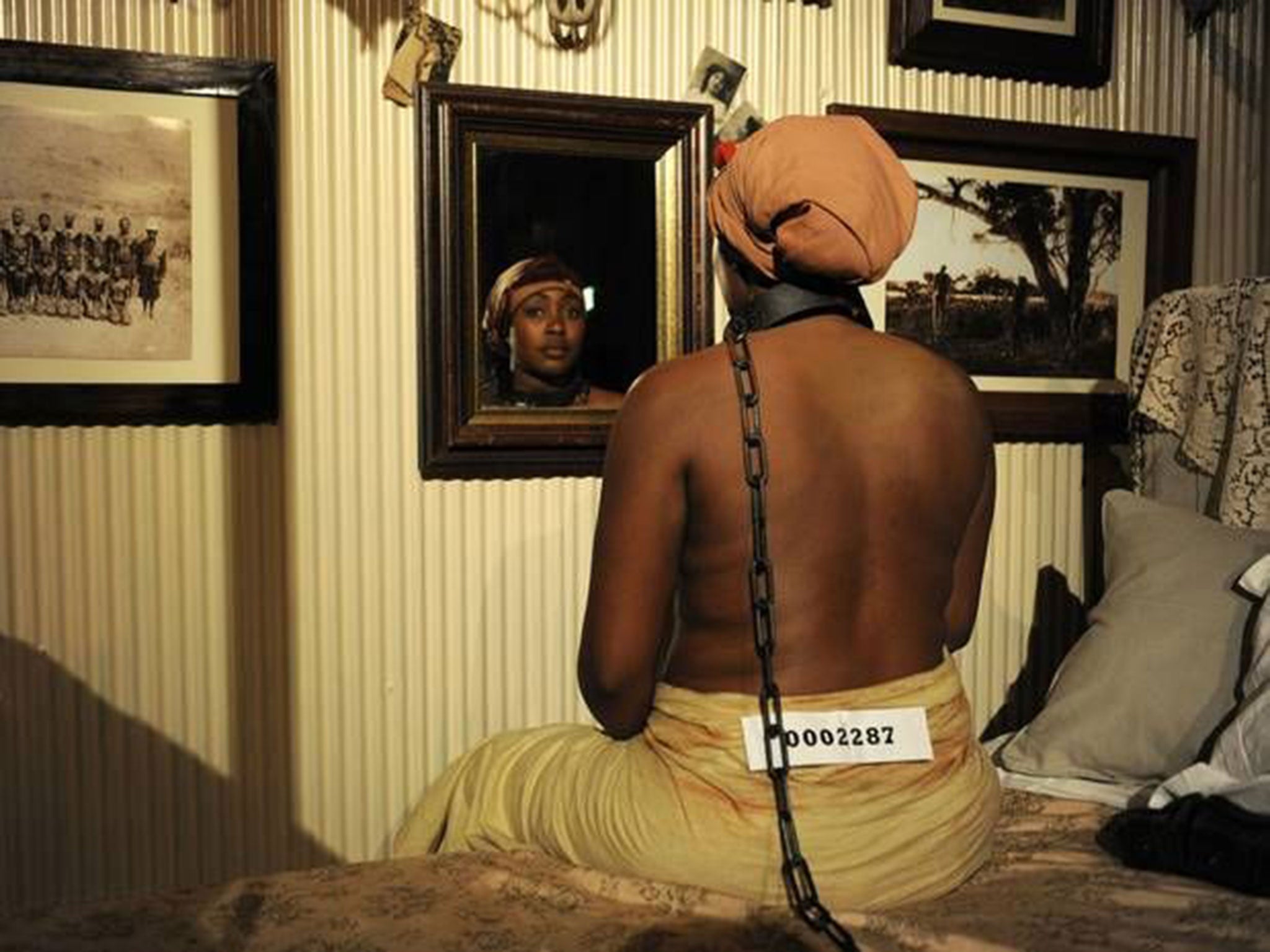It's not just the censorship of Exhibit B which proves that the stupid are winning
We've reached a worrying moment in our history where anything awkward or ambiguous is deemed unworthy

It has been a good week for those who like to live in a world of comfortable stupidity. The editor of Radio Four’s Today programme has revealed that, because some of the younger listeners to the programme have allegedly complained that “they have to pay too much attention", and that some items are “too difficult to understand and too long”, it will start to include lighter, shorter segments about entertainment and technology. There will also be more - how the heart sinks - “sideways looks” at the news.
Across London, difficulty of an altogether thornier type was being addressed in a similarly feeble way. The live art installation Exhibit B, praised internationally as a thought-provoking critique of the cruelty and racism of the past, was picketed by angry protesters, and then quickly closed down. Those who attacked the show claimed it was intrinsically racist. “This re-exoticises and reproduces the original racism,” wrote a sociologist Dr Kehinde Andrews. The former Director for Policing and Equalities in the Greater London Authority Lee Jasper argued that black people, not white liberal elites, were the best arbiters of whether Exhibit B challenged prejudice.
Not that those who demanded the show’s closure had actually seen it. “I do not want to collude in the piece by experiencing it,” wrote Dr Andrews. “I have never, and will never, see a black and white minstrel show, but I am certain they are racist.”
Thus, month by month, the great march of stupidity continues its sinister progress, closing minds as it goes. Whether at the BBC or the Barbican, the attitude is much the same: any discussion or exhibition which raises difficulties or makes us feel awkward should be simplified or, better, removed altogether.
This development is alarming and sinister. It is precisely because items on the Today programme are complex - because they move beyond the easy slogan or soundbites favoured by politicians - that they need to be broadcast. The very fact that the Barbican exhibition showed humanity at its worst was why it needed to be seen.
In fact, the reactions to the show reveal the very ethical complexity which it addresses. If, as Jasper says, black people should be arbiters of whether a show about racism is acceptable, does he believe that the same standards should be applied to any area of potential offence? Should only Jewish critics review Martin Amis’s The Zone of Interest? Should Mormons decide whether The Book of Mormon can be staged? Are Conservatives to decide whether Hilary Mantel’s story “The Assassination of Margaret Thatcher” is morally sound?
With his remarks about black and white minstrel shows, Dr Andrews also reveals the problem of his position. If he had allowed himself to read about the subject - perhaps in Nick Tosches’s brilliant Where Dead Voices Gather (“If mistrelsy is to be understood, it must not be seen with myopic simplicity, as a ‘racist relic’”) - he would know that the history of blacking up is more complicated than he, in his boastful ignorance, seems to think.
We have reached a worrying moment in our history when broadcasters, politicians and even academics, have become cheerleaders for stupidity, passionately campaigning against anything awkward or ambiguous.
In a saner, braver world, those who prefer to know the truth, however “challenging” or discomfiting, would be in the majority, and the simplifiers and suppressors would be put in their place. It would seem obvious that anyone who opposed thought and debate should be distrusted.
That is not our world. Ever since it became widely accepted that causing anyone offence was an infringement of his or her rights and should therefore be controlled or banned, a desire to control areas of tricky debate has infected our institutions. It is now just fine to say that any part of our history which raises ethical questions should be hidden from the public gaze. This moral laziness provides a fertile ground for authoritarianism and bullying.
The new need to be cosseted, not to be challenged, is evident in all parts of our culture. Interviewed in advance of his film Gone Girl, the director David Fincher has referred to what he calls “the whole fucking likeability thing”. Film audiences, he says, now feel uneasy with characters who appear likeable but then do unlikeable things. There are complaints that moral ambiguity, the blurring of the good and the bad, is “unsatisfying”.
This simple-minded fear of any fact or story which takes us out of our emotional or intellectual comfort zone is weaselly and middle-aged.
Those who feel so passionately that moral difficulty should be kept out sight, and if necessary suppressed, are people who have a vested interest in the closing of minds. The young listeners about to be patronised by light, short items and sideways looks on the Today programme, should demand more complexity, not less.
Those in the arts and academia could do worse than embrace the attitude expressed by David Fincher when he says, “I don’t try to piss people off. It’s just always the right thing to do.” As for the rest of us, we should simply fight for the right to see and to think for ourselves. It has never been more important.

Join our commenting forum
Join thought-provoking conversations, follow other Independent readers and see their replies